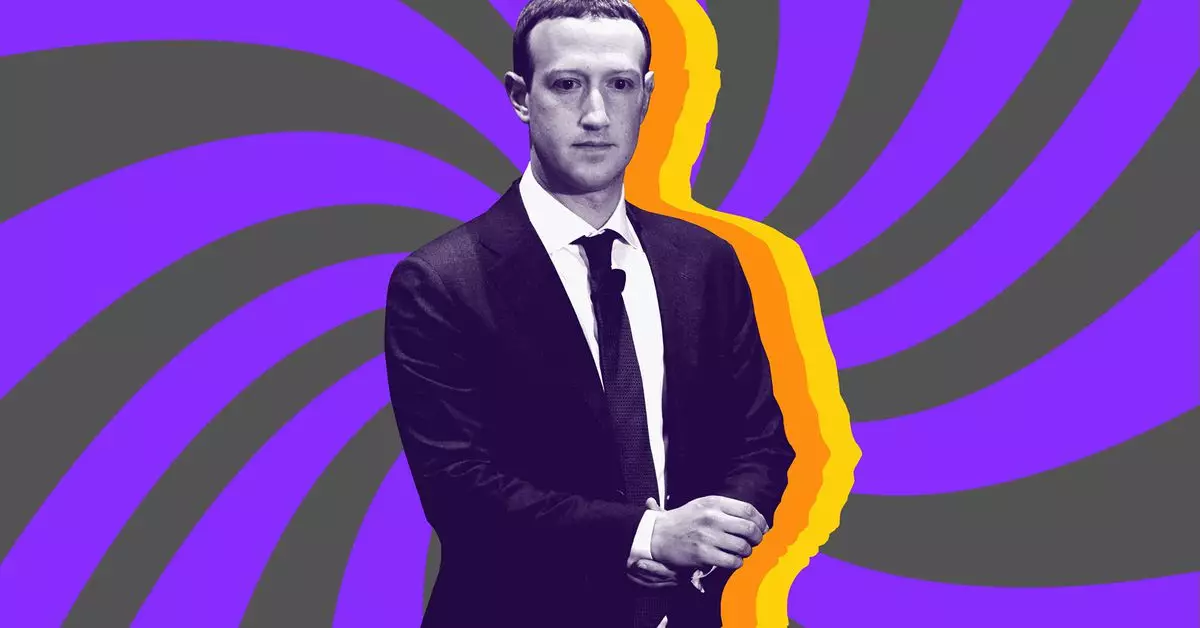The realm of technology is often filled with rivalry, but recent comments from Meta’s CEO, Mark Zuckerberg, highlight a particularly intense contention between Meta and Apple. In a captivating three-hour dialogue with podcast host Joe Rogan, Zuckerberg evaluated Apple’s innovative stagnation and stringent policies. This article delves into the crux of those discussions, examining the implications of Apple’s current practices and the broader dynamics in the tech landscape.
Zuckerberg’s remarks point to a growing sentiment that Apple, once at the forefront of technological revolution, has been resting on its laurels. He expressed that Apple is “coasting off of its past success” since the late Steve Jobs revolutionized smartphones with the iPhone. The critique is particularly pointed, illustrating a perception that Apple has not introduced groundbreaking products in recent years. While the iPhone is heralded as a monumental invention, there is a growing belief that Apple’s innovations have stalled in the decade-plus since its launch.
This commentary raises critical questions about how long a company can rely on a single product narrative. Complacency in innovation often leads to vulnerability, especially in an industry marked by rapid evolution and competition. For tech enthusiasts and investors alike, the gritty reality remains: without continuous innovation, even the most celebrated technologies can lose relevance.
Central to Zuckerberg’s critique of Apple is the controversial App Store policies, particularly the 30% surcharge on transactions. Joe Rogan echoed similar sentiments, voicing his reservations about being tethered to Apple’s platforms and expressing a desire to shift to Android. This dissatisfaction resonates with many developers and businesses that rely on mobile applications, framing Apple not merely as a technology provider but as a gatekeeper wielding excessive power over its ecosystem.
Zuckerberg bluntly stated that Apple’s arbitrary rules “thoroughly hamstrung” competitors, suggesting that the closed ecosystem hinders innovation by restricting third-party developers from fully utilizing resources that could enhance user experiences. The contention lies not only in the financial implications for Meta but also in the broader arena of consumer choice and fairness in the market.
As Zuckerberg voiced his concerns about Apple’s policies and practices, it became evident that the company is increasingly under scrutiny. European regulators have begun to impose stringent laws that challenge Apple’s dominant policies, and the U.S. government is also investigating the company for potential antitrust violations. These developments are significant not just for Apple but for the entire tech industry, as they signal an urgent need for reform within long-established business practices.
Zuckerberg predicted that Apple’s model of benefiting only its products would inherently damage their market standing. This viewpoint is increasingly echoed across the tech space, where a fresh wave of competition is rising, fueled by innovations and diverse business models that foster integration and accessibility. The future will tell whether companies like Meta can successfully leverage these challenges against giants like Apple.
While the debate over Apple’s corporate strategies and Meta’s competitive ambitions takes center stage, other pressing issues in technology cannot be overlooked. Zuckerberg’s exploration of neural interfaces suggests a future where the human and digital realms intertwine seamlessly. He described a vision where augmented reality begins to dominate user experiences, underscoring the rapid advancements in this field.
The evolution of smart glasses and potentially wrist-based neural devices could transform how we interact with both our environment and technology. Zuckerberg believes that gradually, virtual elements will be inextricably woven into our physical existence, leading to a paradigm shift in how we understand and experience reality.
This vision is noteworthy, prompting inquiries about ethical implications, privacy concerns, and human adaptation in this evolving landscape. As technology becomes more integrated into daily life, the discussions surrounding its regulation and the responsibilities of major players like Meta and Apple will only become more complex.
In the end, Mark Zuckerberg’s critique of Apple exemplifies a pivotal moment for both companies and the wider technology sector. The interplay of competition, innovation, and regulation will define not only their trajectories but also the future of how technology interacts with society.
As the dialogue around innovation continues to evolve, the lingering question remains: will giants like Apple be able to adapt and innovate before they find themselves overshadowed by new entrants redefining the rules of engagement? The answers may shape the tech landscape for years to come.


Leave a Reply